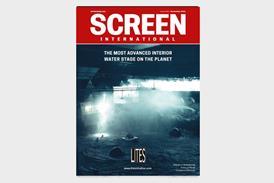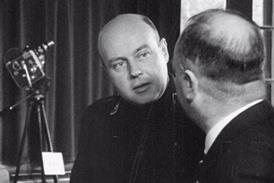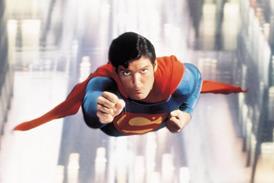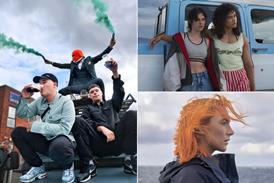Minority training in the US
One of the hottest US initiatives supporting women and minority film-makers is the Tribeca Film Institute's Tribeca All Access (TAA), a project-based, meetings-driven programme held during the Tribeca Film Festival in April, and now in its sixth year. Programme manager Tamir Muhammad says the 2009 TAA will expand to include workshops and masterclasses on topics such as packaging films in the current economy and alternative distribution.
'This programme is about supporting a film career, not just one project,' Muhammad says, pointing to the success of Alfredo De Villa, a TAA alumnus who directed Nothing Like The Holidays for Overture. 'You can't just look at the statistics, it's also important to look at how the industry is positively responding to new voices.'
If TAA is the hot newcomer, then the established initiative is the American Film Institute (AFI)'s Directing Workshop For Women in Los Angeles, which has trained more than 200 women in narrative film-making since 1974. While the statistics of women directing features are still troublesome, Joe Petricca, AFI executive vice-dean of AFI Conservatory, says it is another sign 'this programme is still viable and needed'. A further indicator is that there are about 200 applications for each year's eight slots.
Another long-standing supporter is the Sundance Institute's Native Initiatives, a mandate started by Robert Redford when he founded Sundance 27 years ago, which backs the development of Native American and indigenous artists. Fellows are selected each year to attend a Native Forum (backed in part by the Ford Foundation) and Native American projects are also supported across the institute, including in festival programming and the renowned Sundance labs. Alumni include Chris Eyre, Sterlin Harjo and Taika Waititi.
Bird Runningwater, associate director of the Native American and Indigenous Program, sees positive signs of change: 'There seem to be more native film-makers working in fiction film than ever before and I do think that's partly down to our initiatives.' Looking to the future, he says: 'I have been strategising lately to find ways to get our native film-makers straight into the industry.'
One way to get minority voices into the industry is to offer education via hands-on work. Michelle Byrd, executive director of New York-based Independent Feature Project (IFP), notes the organisation is working with the New York mayor's office to set up the Made in New York Mentoring Program, a nine-month placement for women and minorities to work directly in the industry (also with mentoring and workshops).
'If you want to see change, you need to find people who have great skills and just need that assistance in building a network,' Byrd says. 'This is one practical thing we can do in a difficult economy.'
At the IFP overall, Byrd says the organisation is successful at meeting its target that '50% of our projects across all programmes should be diverse ... We think it's more integrated and seamless than a separate diversity programme.'
Women Make Movies (WMM), a non-profit group set up in 1972, works across production, promotion, distribution and exhibition and also hosts workshops on topics such as tax and legal issues, budgeting and marketing ideas. Debra Zimmerman, executive director of WMM, explains: 'The history of our workshops mirrors what's been going on for women film-makers. In the 1970s, it was all production oriented. But by the 1980s, women had the skills to make films and they just needed help getting them out there, so that's why we've done more industry-focused workshops.'
Los Angeles-based Film Independent's nine-month diversity programme, Project: Involve has workshops, screenings, career development and mentoring for film-makers from under-represented communities.
Screenwriting is a popular entry point for diverse voices. For example, the National Association of Latino Independent Producers runs a 20-day Latino Writers Lab and USC and Ucla have sponsored fellowships for minority screenwriters.
The Writers Guild (West) has a separate education department. 'We do have a certain amount of education/training and career development aimed at the diversity groups,' says director Kimberly Myers.
All the major programmes Screen surveyed said funding was secure for 2009 and seemed likely to continue in the future even if funding dips.
CASE STUDY - AFI DIRECTING WORKSHOP - DEB HAGAN
Director Deb Hagan says the AFI's Directing Workshop For Women (DWW) was a clear path to her career today. 'It did directly impact on my opportunities for directing feature films,' acknowledges Hagan, who made her feature directorial debut, College, for Lionsgate, Element and State Street last year.
Hagan was a commercials director when she entered the DWW in 2004. 'It was a point in my career when I wanted to open the door to some different opportunities,' she explains.
The structure of three weeks of intensive workshops followed by a short-film shoot was a good match. 'It was good exposure to all aspects of film-making,' she says. But she would like to see improvements in the project material brought by some of the directors. 'By and large, the participants are maybe more qualified than the scripts,' she notes. 'But as a director, that's your job to identify good material.'
Hagan has several directing projects at various stages of development, and is also moving into producing, teaming with Adam Shankman to produce Anne Fletcher's Matadors at Disney.
CASE STUDY - SUNDANCE NATIVE FELLOW - ANDREW MACLEAN
New York-based, Alaska-born film-maker of Inupiaq heritage, Andrew Okpeaha MacLean, screened his first short Seal Hunting With Dad at Sundance 2005 before becoming a Sundance Native Fellow in 2006. That is when he first started work on his next short, Sikumi, which went on to win the jury prize at Sundance 2008.
He says the prestige of Sundance and the native programme in particular, helps any emerging film-maker: 'It lets you develop a relationship with other indigenous artists, both from North America and all over the world.
'But it also requires initiative from the film-maker. You have to be proactive to get the most support from it.'
He points to Native Initiatives guru Bird Runningwater, who has been with Sundance since 2001, as the key to the programme's success. 'I feel like I can still always call Bird, and he can give advice. And if he can't help personally, he's got an amazing network.'
MacLean recently attended the Sundance Screenwriters Lab in January for his first feature, On The Ice, which he plans to shoot in spring 2010.



















No comments yet